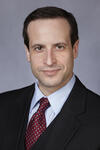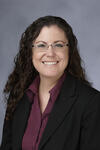In The News: Greenspun College of Urban Affairs

Las Vegas police officers were cited more than 3,000 times from January through October for failing to comply with body camera requirements, according to a report released by the Metropolitan Police Department.

The Electoral College meets today, and Nevada's six electoral votes are set to go to President-elect Joe Biden, despite attempts by the Trump campaign to overturn the results.

In a world where conspiracy theories and political polarization abound, how does one effectively pull off double duty at battling against both the spread of COVID-19 and misinformation about it?
American democracy, always perhaps less sturdy than we imagined, has shown itself of late to be alarmingly fragile. Its survival depends on a number of elements currently in short supply: elected officials who abide not just by the law but by long-observed Constitutional principles and norms of behavior; a body politic animated more by the better angels of our nature than by our baser instincts or a cynical grasping after power; and, finally, on some minimum number of agreed-upon facts, and a shared sense of reality, among the citizenry.

In November’s election Nevada voters narrowly rejected Question 1. The legislatively referred constitutional amendment proposed to change the Board of Regents of the University of Nevada from a constitutional to a statutory body in order to more effectively facilitate legislative oversight of higher education.

In November’s election Nevada voters narrowly rejected Question 1. The legislatively referred constitutional amendment proposed to change the Board of Regents of the University of Nevada from a constitutional to a statutory body in order to more effectively facilitate legislative oversight of higher education.

In November’s election Nevada voters narrowly rejected Question 1. The legislatively referred constitutional amendment proposed to change the Board of Regents of the University of Nevada from a constitutional to a statutory body in order to more effectively facilitate legislative oversight of higher education.
As the Christmas and New Year’s holidays loom in less than a month, visitors to Las Vegas are coming at a snail’s pace, prompting some officials to suggest the city needs to diversify beyond just tourism even with the prospect of coronavirus vaccinations pending.

A surge of COVID-19 cases in correctional facilities is not only endangering the lives of tens of thousands of people behind bars in Nevada, it’s threatening the health and well-being of everyone in our communities.

John Beckmann has been hosting Las Vegas casinos for 20 years, attracting players with free airfare, show tickets, and the like.

John Beckmann has been a Las Vegas casino host for 20 years, luring gamblers with free airfare, show tickets and the like.
The year 2020 has amplified demands for more equitable policing, more efficient government, and greater transparency. As police leaders around the world attempt to maintain order and safety during a period of large-scale civil unrest, they must also address criticisms that existing law enforcement practices include biased interventions and reinforce systemic racism. Many law enforcement agencies are also responding to increasing numbers of serious crimes that disproportionately affect society’s most vulnerable communities, while simultaneously facing calls to “defund the police” fueled by accusations that challenge the legitimacy of their policing tactics. The strategies used by agencies to manage protests and respond to rising calls for service are under heightened scrutiny, yet one might ask, “Have police leaders developed the internal analytic capacity to answer pressing questions about the fairness and effectiveness of their department’s practices?” Now, more than ever, the profession’s future may depend on leaders’ ability to leverage data to understand, acknowledge, respond to, and explain the impact of their chosen crime response and prevention strategies.



